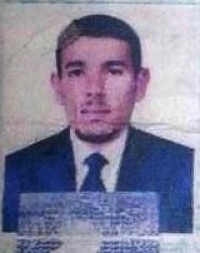Home » Iraq » IRQ - News » Iraq: Enforced Disappearance of Another Citizen from Dulaim since October 2014
On 18 October 2014, Arshad Al Dulaimi was coming back home from work with his cousin Jamal. When they reached the Dulaim bridge, at about 4pm that day, they were arrested by the soldiers guarding the checkpoint situated there. As Jamal – who was set free 10 days later – could attest, they were both brought to Al Aqrab prison in the nearby city of Hillah, 100km south of Baghdad.
Worried for their own safety, Al Dulaimi's relatives did not reach out to the authorities, and contacted Alkarama and Al Wissam Humanitarian Assembly hoping the two human rights organisations could help to locate him by bringing his case to the attention of the CED to call upon the Iraqi authorities to release him immediately or, at the very least, to disclose his whereabouts and allow his family to visit him without restriction.
"It is concerning to see that Al Dulaimi's case only adds to a long list of persons disappeared from the village of Al Dulaim, and even more considering that another victim from Al Dulaim also disappeared after being brought to Al Aqrab prison in Hillah," states Inès Osman, Legal Officer for the Mashreq. "The Iraqi authorities must immediately put an end to the use of enforced disappearance to spread terror among the population, as this practice amounts to a crime against humanity as well as a war crime, and ensure that all persons who were forcibly disappeared are searched and located without delay."
For more information or an interview, please contact the media team at This email address is being protected from spambots. You need JavaScript enabled to view it. (Dir: +41 22 734 1008).
 Algeria
Algeria Bahrain
Bahrain Djibouti
Djibouti Egypt
Egypt Iraq
Iraq Palestine/Israel
Palestine/Israel Jordan
Jordan Kuwait
Kuwait Lebanon
Lebanon Libya
Libya Mauritania
Mauritania Morocco
Morocco Oman
Oman Qatar
Qatar Saudi Arabia
Saudi Arabia Sudan
Sudan Syria
Syria Tunisia
Tunisia United Arab Emirates
United Arab Emirates Yemen
Yemen Other Countries
Other Countries







